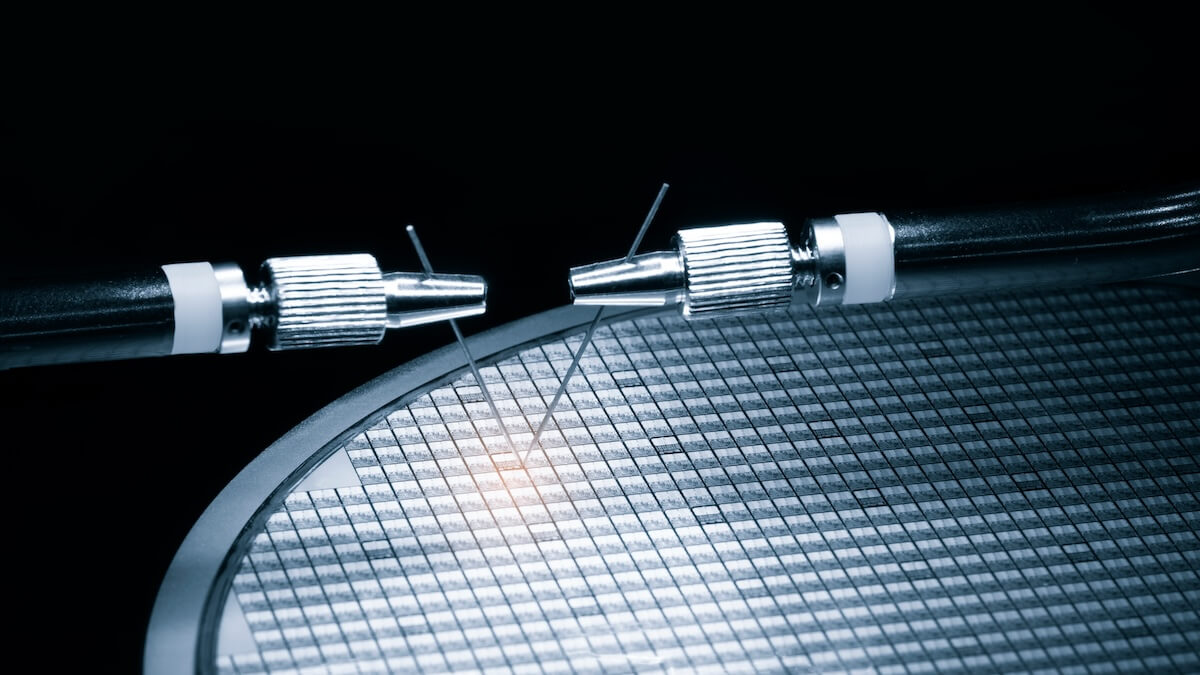The contribution without silicon: crystal transistor is intended to increase performance from AI first appeared at the online magazine Basic Thinking. You can start the day well every morning via our newsletter update.

A crystal transistor could replace silicon in AI chips and give them a strong boost. The tiny device is said to have significantly higher electron mobility and stability than classic silicon transistors.
Whether smartphones, laptops or servers: they are all full of tiny transistors made of silicon. These switches regulate the current flow and make modern technology possible in the first place. But silicon has a decisive disadvantage, because it reaches its limits. Specifically, while chips are getting smaller, the material reaches its technical limits.
However, researchers from Tokyo could now have found a solution for this problem. They developed a new type of crystal transistor. Instead of silicon, the scientists put on gallium -doped indium oxide (Ingaox). This material can be formed into a stable crystal through which the electrons can flow more easily.
Crystal transistor as a key to powerful technology
Examples of future applications are AI systems or large data centers. The advantages are not only in the material, but also in the structure. The crystal transistor has a so-called “Gate-All-Around” structurein which the control element completely surrounds the power channel. This increases efficiency and enables smaller, more powerful components.
The researchers built their crystal transistor layer by layer. There was also a procedure called “Atomic layer deposition“To be used. The team then heated the film to create the ideal crystal structure. The result is a transistor with high electron mobility and high stability.
Even under stress conditions, it remained powerful for almost three hours. He thus clearly makes similar components developed with regard to reliability and speed.
Performance boost for smartphones and AI
The possible consequence of the crystal transistor: better smartphones with more computing power, server that consume less electricity, or AI chips that work faster and more efficiently. And all with a material that is not only more powerful, but also more robust than silicon.
It remains to be seen whether the new crystal transistor is completely replaced by silicon. However, it shows that even after decades full of innovation there is still scope for real breakthroughs. Perhaps a new chapter in the world of electronics begins with this tiny component.
Also interesting:
- Chatgpt: This is how you can create your own GPTs
- The most stubborn electric car myths-and what is about them
- Green Prompting: How you can keep the energy consumption of AI in check
- Researchers develop method to produce hydrogen without electricity
The contribution without silicon: crystal transistor is intended to increase performance from AI first appeared on basic thinking. Follow us too Google News and Flipboard Or subscribe to our update newsletter.
As a Tech Industry expert, I believe that the development of crystal transistors as an alternative to silicon holds great potential for increasing the performance of AI technologies. Silicon has been the backbone of the semiconductor industry for decades, but as we push the boundaries of computing power and efficiency, we are reaching the limits of what silicon can offer.
Crystal transistors, which are made from materials like gallium nitride or diamond, have the potential to provide significant improvements in performance due to their unique properties such as higher electron mobility and thermal conductivity. This means that crystal transistors could enable faster processing speeds, lower power consumption, and increased reliability for AI applications.
Furthermore, the use of crystal transistors could also open up new possibilities for innovative AI architectures and algorithms, as their superior performance characteristics could enable more complex and sophisticated computations to be carried out in real-time.
Overall, the development of crystal transistors as a replacement for silicon in AI technologies represents an exciting opportunity for advancing the capabilities of artificial intelligence and unlocking new possibilities in the field of computing. It will be interesting to see how this technology evolves and how it will impact the future of AI development.
Credits